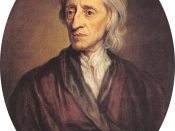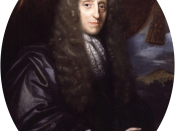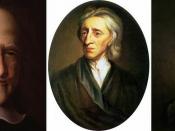The political arena in modern times is often times fraught with dissension, treachery and agendas which are set in place only to forward individual means. These circumstances are not coincidental or without reason; in fact they are reminiscent of many conflicts across ages. Politics as a science has thus evolved through series of theories which attempt to formalise the process and circumstances which pervade the arena. We thus find there three key elements authority, legitimacy and power exist within the formalisation of theory.
ÃÂThe idea of authority is central to any political order.ÃÂ (Stirk and Weigall, 1995:39)Authority in essence can be defined as the ÃÂright to issue on command and, because the command is rightfully issued, citizens are under an obligation to obey.ÃÂ (Stirk and Weigall, 1995:39). Central to this tenet of authority is the idea that authority must have justice. This keys the question, what is justice? Which according to Plato is no different to asking what form of the state is idealistic.
(Stirk and Weigall, 1995:2). PlatoÃÂs conclusion suggested that the best form of the state is the moral reordering of the whole of society (Annas, 1881:13) This suggests that morally society is to return to the way things ought to be in order for man to be the best version of himself and thus for society to be idealistic and perfect governance thus is achieved. This view contrasts starkly with the view of Thomas Hobbes who felt that PlatoÃÂs view was somewhat utopic and that the key to escaping the state of nature (which he viewed as largely pessimistic) was to institute a political structure whereby one individual was elevated to a position of antonymous authority (Stirk and Weigall, 1995:11). This in HobbesÃÂ opinion was the only way we could ensure life would not be ÃÂsolitary, nasty,


